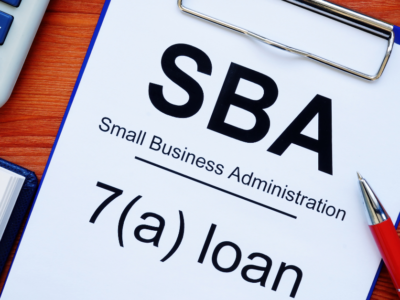Financing for Your Small Business: SBA Loans You Need to Know About (Part I – SBA 7(a))
December 17, 2020
By Andrew T. Smith
At some point over the life of a company, entrepreneurs will likely need to obtain financing in connection with the operations of their businesses. A business may need additional capital to replenish inventory, acquire machinery and equipment, cover wages for employees, or even make monthly rent payments to avoid an interruption in operations. When it comes to business financing, “SBA Loan” is a term that every business owner should be familiar with.
The United States Small Business Administration (the “SBA”) is a federal agency that provides support to entrepreneurs and small businesses. The SBA mission is to help “Americans start, build, and grow businesses” and “aid, counsel, assist and protect the interest of small business concerns, to preserve competitive enterprise and to maintain and strengthen the overall economy.”
An SBA Loan is not a loan directly from the SBA, but rather, the SBA helps small business owners secure loans by guaranteeing a portion of the amount borrowed, capping interest rates, and limiting fees. The SBA works with a network of approved banks that lend money to small businesses on better terms and conditions than other types of commercial loans. These loans are particularly attractive to lenders, as a portion of such loans are guaranteed by the SBA in the event that the borrower defaults.
The most common form of these loans is the SBA 7(a) Loan – which includes several sub-categories depending on the amount borrowed and the borrower’s intended use of the loan funds. The maximum loan amount for a standard 7(a) loan is $5 million. The SBA will guarantee this type of loan for up to 85% for loans that are less than $150,000.00 and 75% for loans greater than $150,000.00. Interest rates are negotiated between the lenders and borrowers, but that percentage cannot not exceed the SBA maximum rate. Some SBA-qualified lenders are also granted authority to approve loans without the SBA’s review, making the process faster. Generally, lenders are not required to request collateral for loans that are less than $25,000. For loans in excess of $350,000, the SBA requires that the lender collateralize the loan to the maximum extent possible (up to the loan amount).
There is a reason the SBA 7(a) Loan program is so popular with business owners as its uses are as extensive as they are varied.
Andrew T. Smith is an associate attorney with Flint, Connolly & Walker, LLP currently assisting clients in various corporate and real estate transactional matters. He is experienced in a range of legal issues affecting business owners and is knowledgeable in the various federal loan programs available to small businesses and nonprofits. Andrew is also NADCO-certified to handle SBA 504 loan closings.

